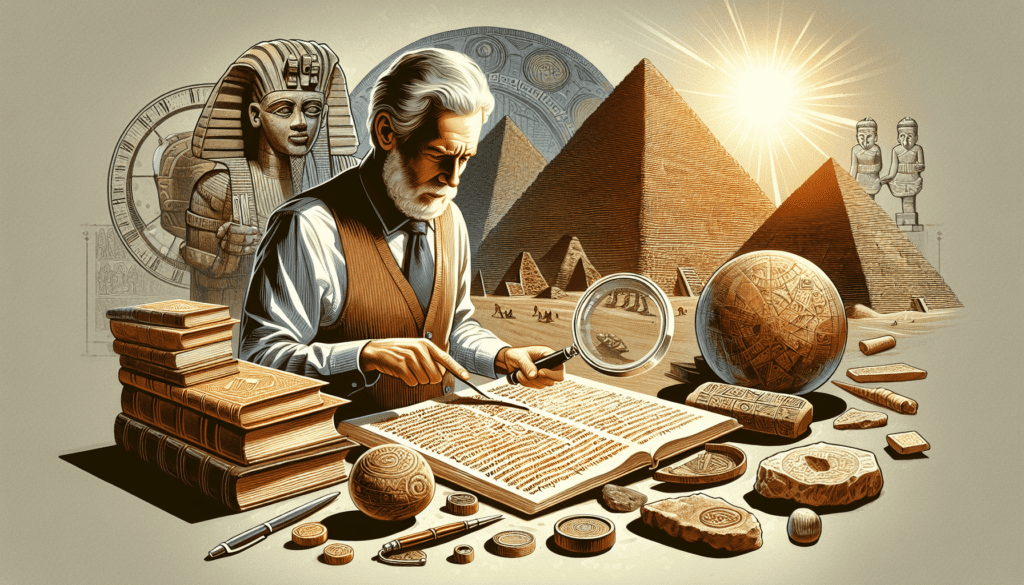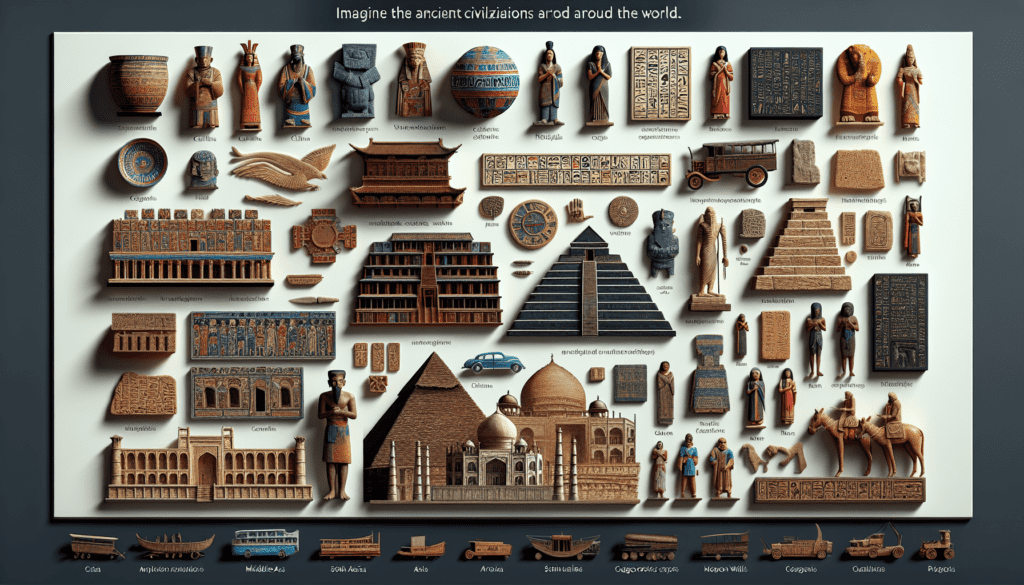In the dynamic field of archaeology and history, the Master of Ancient Cultures (MAAC) program stands as a beacon of knowledge and insight. Through this advanced course, you unlock the potential to explore long-forgotten civilizations, their social structures, artistic masterpieces, and technological innovations. You won’t merely study history, you will go beyond, piecing together the remnants of antiquity to form a cohesive picture of past societies. This in-depth understanding prepares you not just to appreciate the intricacies of our human past but also equips you with the analytical capabilities required to impact the future. The MAAC is more than a course; it is a transformative journey to the heart of what defines us as a species: our shared history.

What is Master of Ancient Cultures (MAAC)?
The Master of Ancient Cultures (MAAC) is a postgraduate program designed to deepen your understanding of the ancient world. This course provides an opportunity to study the history, languages, ideologies, and ways of life of ancient civilizations. Your study will not remain confined to textbooks; rather, it will expand across artifacts, architecture, representations, and theories associated with ancient times.
Program Overview
As part of the MAAC program, you will partake in interdisciplinary studies that merge elements like archaeology, literature, philosophy, and art history. This comprehensive approach offers an in-depth exploration of the cultures of Greece, Rome, Egypt, and Near East. Faculty members guide through the exploration of these ancient worlds by scrutinizing both the primary and secondary sources.
Curriculum
The curriculum for a MAAC program is varied and extensive. The coursework includes historical studies, linguistic analysis, philosophical discourse, and archaeological investigation. By learning ancient languages like Greek, Latin, and Hebrew, you get to interpret historical documents firsthand. Standard coursework would typically encapsulate the chronicles of ancient civilizations, sacred texts, mythologies, and material cultures from different periods and regions.
Admission Requirements
Admission to a MAAC program generally requires a bachelor’s degree from an accredited college or university, with a strong academic record in classics, archaeology, history, or a related field. Additionally, prospective students may need to demonstrate proficiency in ancient languages. Other common requirements include letters of recommendation, a statement of purpose, and a resume or CV.
Career Opportunities
Graduates of the MAAC program have a wide range of career opportunities, which predominantly lie in academia, museums, cultural institutions, and the tourism industry. The in-depth research skills can facilitate a career in education and academic research, whereas the knowledge of historical collections and artifacts would be useful in museum curation. Moreover, you could work for archaeological sites, consulting firms, publishing houses, or even travel agencies that specialize in heritage tourism.
Why pursue a Master of Ancient Cultures?
Pursuing a Master of Ancient Cultures allows you to delve deeper into your passion for history and ancient cultures. The immersive experience provided by this program offers the opportunity to study historical societies, anthropological phenomena, and ancient languages.
Passion for History and Ancient Cultures
The MAAC program is ideal for history enthusiasts eager to dig deeper into the mysteries of ancient civilizations. This degree gives you the tools to critically examine the interplay between culture, history, and politics in ancient societies.
Opportunity to Study Abroad
Many institutions offer MAAC students the chance to study abroad and engage directly with ancient civilizations and their remains. These international experiences often include archaeological fieldwork, museum visits, and seminars with international scholars.
Career Prospects in Academia and Research
A MAAC degree can unlock various doors in academia and research. For those who aspire to have a career in teaching, a Master’s degree in Ancient Cultures allows you to specialize and teach at high school or university levels. Alternatively, you may choose to work at research institutes or think tanks dealing with historical research and policy.
Choosing the Right MAAC Program
When considering a MAAC program, you need to look at the accreditation and reputation of the institution, the expertise and approachability of the faculty, and the availability of specialization options and research opportunities.
Accreditation and Reputation
Accreditation ensures that the institution meets or exceeds an established set of educational standards. Furthermore, the reputation of the institution can also have an impact on your future employment prospects.
Faculty Expertise
Faculty members’ familiarity with ancient cultures and their areas of specialization are also significant factors to consider. You should seek out programs with faculty who have published notable research in their respective fields and who are willing to mentor students closely.
Availability of Specialization Options
The course structure should provide an array of elective courses, thereby allowing you to tailor your studies according to your interests. Opportunities for further specialization can solidify your expertise and interest in a certain facet of ancient culture.
Research Opportunities
A program that emphasizes and facilitates both primary and secondary research can help you develop a comprehensive understanding of ancient cultures. Programs that offer opportunities to participate in archaeological digs or curatorship projects are particularly valuable.
MAAC Program Curriculum
The Master of Ancient Cultures program offers a balanced curriculum that includes core and elective coursework along with either a thesis or capstone project.
Core Courses
In core courses, you will study significant themes and developments in ancient cultures. Some examples could include studying the formation of the Roman empire or the philosophies of Ancient Greece.
Elective Courses
Elective courses vary widely, giving you the freedom to explore specific areas. You might be able to study topics such as ancient mythology, sacred scriptures, archaeological methods, or the art and architecture of a particular civilization.
Thesis or Capstone Project
The program culminates in a thesis or capstone project, where you conduct independent research on a topic of your choosing related to ancient cultures. This project gives you the opportunity to apply your knowledge and skills to a significant historical question or issue.

Job Prospects for MAAC Graduates
Completing a MAAC can unlock a wide array of careers.
Careers in Museums and Cultural Institutions
As a MAAC graduate, you can become a curator, conservator, or archivist at a museum. You could also go on to work at libraries, galleries, auction houses, or cultural consultancy firms.
Academic Research and Teaching
With a Master’s degree, you have the potential to teach ancient history or culture at a high school or university level. Alternatively, you could pursue doctoral studies and work in research or academia.
Heritage Tourism Industry
The heritage tourism industry also calls for professionals who have an understanding and appreciation of ancient cultures. Travel agencies that specialize in historical tourism, archaeological sites, and heritage sites are potential employers.
Scholarships and Financial Aid for MAAC Students
Financing your MAAC program doesn’t have to be a daunting task. Numerous options are available to help offset the cost.
Scholarship Opportunities
There are numerous scholarships available that are specifically for students studying Ancient Cultures or related fields. These are often based on academic merit, financial need, or both.
Funding Options
Beyond scholarships, other funding options exist. These might include assistantships, fellowships, loans, or grants.
Work-study programs
Work-study programs allow students to work part-time, often in their field of study, while completing their degree. This can provide valuable practical experience, as well as financial benefits.
Study Abroad Opportunities for MAAC Students
Studying abroad can provide unique firsthand experience and perspective in your study of ancient cultures.
Exchange Programs
Exchange programs allow you to study at a partner university in another country. You will get the chance to immerse in a different culture while earning credits towards your degree.
Field research opportunities
Field research abroad exposes students to archaeological digs, inscription readings, and potentially discovering artifacts. These experiences provide real-world insights hard to capture in a classroom setting.
Partnerships with International Institutions
Many schools have links with international institutions to facilitate opportunities for you to carry out part of your studies or research abroad. These partnerships enhance the study experience and allow access to global perspectives.
Internship and Practical Experience
Practical experiences like internships and fieldwork can broaden your understanding of ancient cultures by bringing theories to life.
Internship Placements
Internships are a great way to gain industry experience and apply your knowledge in a real-world setting. You might intern at a museum, a cultural institution, or a research institute.
Fieldwork Opportunities
Fieldwork is often a vital part of a MAAC program. By participating in archaeological digs, you can gain direct exposure to artifact excavation and preservation.
Experiential Learning Activities
Many programs incorporate experiential learning into their curriculum. These opportunities might include museum visits, recreating historical techniques, or participating in archaeological surveys.
Networking and Professional Development for MAAC Students
Career development opportunities and networking platforms form an integral part of your academic journey in a MAAC program.
Conferences and Symposiums
Attending conferences and symposiums can enrich your understanding of ancient cultures. Presenting your research at these events is also an excellent opportunity to hone your presentation skills and receive feedback on your work.
Collaborative Research Projects
Working on research projects necessitates collaboration with faculty members, fellow students, or even professionals. It not only results in tangible research outcomes but also fosters team-building skills.
Mentorship Programs
Mentorship programs provide valuable insights through the guidance and expertise of professionals in the field. They can assist in academic progress, advise on research pursuits, and can be a source of career advice and networking opportunities.
Conclusion
A Master of Ancient Cultures program offers rich and robust academic experiences, leading to a comprehensive understanding of ancient societies. By enhancing your historical knowledge and research skills, this degree can open doors to a multitude of career paths. Whether you are considering a career in academia, research, museums, cultural institutions, or heritage tourism, the MAAC program can provide a solid foundation for your aspirations. Remember to research different MAAC programs to ensure they meet your academic needs and career goals.

